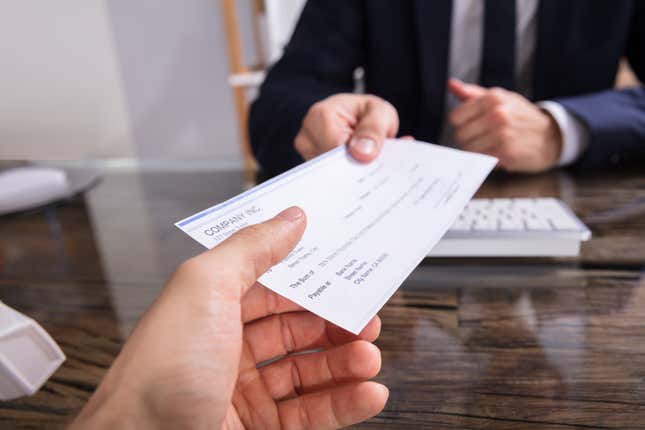
It may not cover everything, but for people who have lost work or wages due to the coronavirus outbreak, the stimulus check promised to them by the federal government could mean the difference between putting food on the table and paying bills or being unable to do either. Imagine the impact on individuals and families if bankers began intercepting those relief funds before they can reach the hands of those who desperately need them in order to pay down bank loans and fees.
According to a report by The American Prospect, the Treasury Department has essentially given banks the green light to do just that. During a webinar with banking officials last week, Treasury Department official Ronda Kent was asked “whether these payments could be subject to collection from the bank to which the money is deposited, if the payee owes an outstanding loan or other payments to the bank.” Kent replied saying that “there’s nothing in the law that precludes that action,” and instructed banks to consult their attorneys about what they should do.
According to the Prospect, one of the webinar attendees who wished to remain anonymous said that Kent’s words were generally translated to mean: “We don’t want to say anything explicitly and are telling you to make a business decision.”
The issue is, while lawmakers exempted the checks from being used to pay off debts to federal or state agencies, no such exemptions were extended to private collectors, despite the fact that the Treasury Department does have the authority to grant those added exemptions and have even been emplored by dozens of Congress members and state attorneys general to do so.
From the Prospect:
Congress did give Treasury the authority under Section 2201(h) of the CARES Act to write rules exempting the payments from private debt collectors. Sens. Sherrod Brown (D-OH), Ron Wyden (D-OR), and Elizabeth Warren (D-MA) wrote to Treasury Secretary Steven Mnuchin on April 3, urging him to write rules to that effect. Brown later teamed up with Republican Josh Hawley (R-MO) to ask for the same thing.
On Monday, 25 state attorneys general (23 Democrats and two Republicans) also asked for Treasury to issue regulations to protect CARES Act payments from garnishment. Numerous consumer advocates have sought this clarification as well. “[Treasury] has the ability to say that these payments are exempt, and they’re not doing so,” said Lisa Stifler, who leads debt collection work at the Center for Responsible Lending.
People who owe outstanding debts on bank loans aren’t the only ones who could potentially be targeted by bankers for relief fund garnishment. According to the Prospect, the anonymous banking official sketched out a scenario involving a “zombie” account where “If you have direct deposit on file with the IRS, the payment is going to that institution even if the account is closed.” In other words, customers who have closed an account—or thought they closed the account but actually left it open with a negative balance—and moved on to another bank, can have their stimulus funds appropriated by the bank they left to pay down whatever balance or fees are still owed.
In this time of crisis, one would hope that no banker would be so lacking in humanity that they would take away the little bit of relief that people who are already struggling have coming to them. But in a world where greed and apathy have a tendency to stand in the way of goodwill, privately owned banks being granted the authority to take people’s stimulus money is a scary thought.



